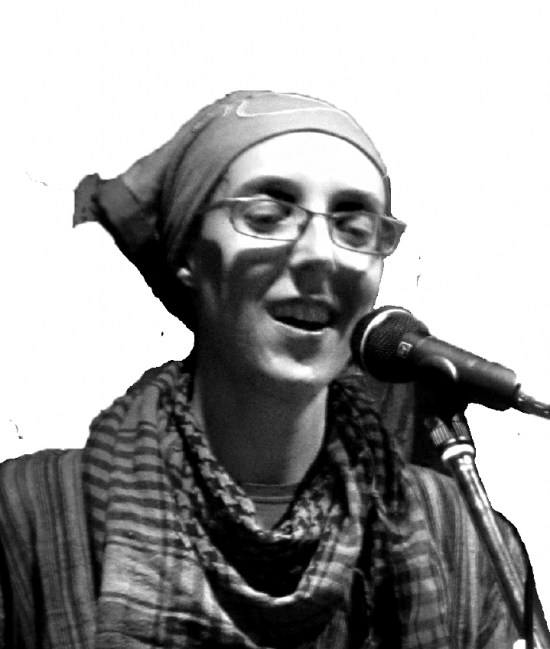Radical music is so often about the core message. We think so carefully about the words we choose to communicate something we feel is important.
We find musically-wrapped words that help us as a community of humans to process many painful injustices in the world around us. But there is a bigger thing that music, and singing together in particular, can bring us and that is somewhere we can hold and experience emotions that are simply too big for words.
Even as a campaigner and songwriter, if I think about the realities facing so many millions of my human cousins, I struggle to find words to express the pain, the sadness and despair of so much of what is happening to people all over the world simply because of inequality and greed.
And, equally, I struggle to find words to express the size of feelings of hope and joy experienced throughout the natural world and global human family.
Despite this, as writers and songwriters, we of course try to find the words! But there is always something more, and for me that’s where I find music.
For other friends of mine, it is through dance or the visual arts that they process this ‘beyond verbal’ world and make connections but, for me and so many others, it always comes back to music.
Throughout the 20th century, enslaved people forcibly transported from across the African continent to the United States kept singing to express the pain and injustice of their lives.
They used these songs not only to build community with each other, but to build resistance, even singing songs to communicate to each other hidden route maps for those attempting escape.
These songs kept thousands of people’s spirits alive through the most unthinkable experiences, and helped thousands escape, literally saving many more lives.
Since the 1970s, lovers of punk music have gathered together, often in dark, dank and sweaty rooms, pogo-ing up and down, sing-shouting along with a band proving that all you really need are three chords, as long as you sing your truth.
Though it was radical folksinger Woody Guthrie who coined the phrase ‘all you need are three chords and the truth’, punk carried it forward with pizzazz.
Punk continues to open up doors for people to imagine possibilities that would otherwise feel locked. Imagining social systems that work differently is inherently part of it, but so is the experience of making music and dancing together as equals, regardless of anything.
If you can do it, so can I, and if I can do it, so can you. But with more swearing.
The singing revolution that bubbled across Estonia, Latvia and Lithuania in the late 1980s brought together thousands of people to sing in defiance of the Soviet occupation of their home countries.
This massive scale of protest and ‘national pride’ singing ultimately helped emancipate all three of these countries with less bloodshed than we have seen in so many comparable conflicts in the world. And they still regularly gather together in their thousands to sing these same songs, expressing and defending their freedom with their collective voice.
In the early 21st century, a small but dedicated underground heavy metal movement flourished in Baghdad.
Some musicians ultimately left Iraq and pursued their music elsewhere, but others remained in their country, expressing their powerlessness around both the internal politics of their country and region and the US invasion of their home.
The dense musical soundscape of heavy metal music is the perfect soundtrack to express the realities of war, amplifying the truth written in the words.
Truths such as ‘(we) grieve for what turns to ashes and bones and buried beneath the garden of stones’ and ‘They start the war and we pay the dues, no we won't fight any longer’. But it is the driving guitar, bass and drums so central to heavy metal music that give such emotional catharsis and strength to the lyrics.
Singing in the streets at our weekly Gaza vigil these past few months, we have seen so many people walk towards the balm of music expressing something inexpressible.
People stop to listen and to sing with us, and to shed tears that hold both pain and relief.
We are connected with each other as we sing together, and we are connected to those who hear us and take time to listen.
And for all of us, the music is sometimes a comforting balm and sometimes a furious roar, expressing something beyond our collective comprehension.
But we are together, and together we feel something.


